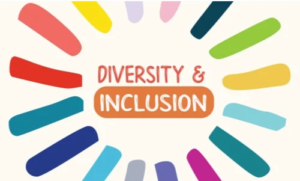
In democracy, accountability is a crucial principle that ensures that those in positions of power—whether elected officials, government agencies, or other institutions—are held responsible for their actions, decisions, and performance. Here’s how accountability operates within a democratic framework:

- Responsiveness to the People: In a democratic system, elected officials are accountable to the citizens who elected them. They are expected to represent the interests and preferences of their constituents and to respond to their needs and concerns. This accountability is primarily exercised through regular elections, where voters have the opportunity to judge the performance of their representatives and choose whether to re-elect or replace them.
- Transparency and Openness: Democratic accountability requires transparency in government operations and decision-making processes. This means that information about government activities, policies, and expenditures should be readily accessible to the public. Transparency enables citizens to scrutinize government actions, assess the performance of elected officials, and hold them accountable for their conduct.
- Checks and Balances: Democratic systems often incorporate mechanisms of checks and balances to ensure accountability among different branches of government. For example, the legislative branch may hold the executive branch accountable through oversight hearings, investigations, and the power of impeachment. Similarly, the judiciary may review the constitutionality of laws and government actions, serving as a check on executive and legislative power.
- Independent Oversight and Accountability Institutions: Democracies may establish independent institutions tasked with monitoring government activities, investigating allegations of misconduct, and ensuring compliance with laws and regulations. These institutions, which may include ombudsman offices, anti-corruption agencies, audit bodies, and electoral commissions, play a crucial role in promoting accountability and integrity in governance.
- Media and Civil Society Oversight: In democratic societies, the media and civil society organizations also play a vital role in holding government accountable. Through investigative journalism, advocacy campaigns, and public scrutiny, the media and civil society can uncover wrongdoing, expose corruption, and demand accountability from elected officials and government institutions.
- Electoral Accountability: Elections serve as a fundamental mechanism of accountability in democracy. Elected officials are accountable to the electorate, who have the power to vote them out of office if they fail to meet expectations or fulfill their promises. Free, fair, and competitive elections provide citizens with the opportunity to express their preferences and hold their representatives accountable for their performance.
Overall, accountability is an essential pillar of democracy, ensuring that government officials are accountable to the people they serve, that power is exercised transparently and responsibly, and that mechanisms are in place to prevent abuse of power and uphold the rule of law.






